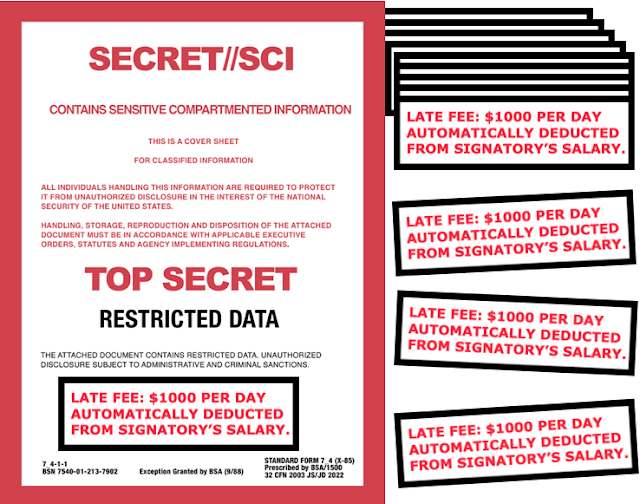#181 Blog Post – Thursday, February 16, 2023
http://dennyhatch.blogspot.com/2023/02/181-junk-journalist.html
Posted by Denny Hatch
The New York Times New Junk Journalist
When a reporter from The New York Times sends me an email, I take notice. When her invitation is for me to send her “bad ads,” I am stopped cold. What is a “bad ad” (other than two words that rhyme)?
I can’t judge whether advertising is good or bad. Advertising judges me.
If an ad — digital, print, direct mail or TV — is repeated over and over again, it’s ipso facto a good ad. In the immortal words of Dorothy Kerr, circ director of US News & World Report: “If an offer keeps coming in over and over again, it’s obviously profitable. Study it and STEAL SMART.”
What Constituted a Bad Ad in Those Salad days?
My first job in direct marketing was in 1961. The industry association was the DMA — The Direct Mail Marketing Association. Back then Direct Marketing was Direct Mail — intimate personal me-to-you communications retrieved in the privacy of your mailbox.
Direct mail was the dominant
advertising medium — far bigger than ads in newspapers, magazines, TV or telemarketing. America’s
mailboxes were stuffed with direct mail. Direct mail was the aristocrat of advertising.
Direct mail also saved (and is saving) the Postal Service. Without direct mail advertising revenue, the USPS would be plum outta business.
In those days, the definition of a “bad ad” was a direct mail package that was sent to the wrong person.
At some point direct mail got the good-natured nickname of “junk mail."
The Direct Mail Marketing Association under founder Henry “Pete” Hoke and his committee chairs hated the term “junk mail.” For a number of years, the DMA bigwigs threatened perdition and even lawsuits against any person or company that used the term “junk mail” in an article or speech. No kidding.
A Quickie Aside.
The wittiest and most fun copywriting team of all time was the legendary Bill Jayme and his designer partner, Heikki Ratalahti. One time Bill and I compared notes and discovered we both adored the term ”junk mail.” What’s more, we both loved using the term because it pissed people off.
Jayme expressed his real feelings about “junk mail” in an interview he did for my WHO’S MAILING WHAT! newsletter many years ago. Jayme said:
“I don't understand why the industry hates the term junk mail.
“I love it.
“After all, antique dealers love junk shops. Old car enthusiasts love junk yards. Until a few years ago, Wall Street loved junk bonds. Who among us doesn't love to head for the beach house with a pile of junk fiction? And what's a Hong Kong fisherman without his beloved junk?
“Junk is a wonderful word.
“Of course, in Heikki's and my case, we spell it “junque.”
http://dennyhatch.blogspot.com/2020/01/81-junk-mail-pr-campaign.html
Okay, Back to the New York Times New Junk
Journalist
Google “Tiffany Hsu” and here’s what comes up:
“Tiffany is currently a reporter focusing on disinformation for The New York Times. She holds an MBA and journalism master's degree from Columbia University. She was previously an award-winning California economy reporter at the Los Angeles Times.”
What Was The New York Times Thinking???
• Why was an “award-winning California economy reporter" handed the prestigious New York Times advertising beat? Has she read David Ogilvy? Vic Schwab? Joan Throckmorton? Eugene Schwartz? Joe Sugarman? Dick Benson? Drayton Byrd? Bob Bly? Rosser Reeves? Denny Hatch? Does she know the meaning of CPM, CPO, allowable cost-per-order? Has she ever written and designed an ad? What are her criteria for passing judgment on a “good ad” or a “bad ad”?
• In short, Tiffany Hsu doesn’t seem to have the creds to know squat about advertising.
• Why would The New York Times — with $110 million in advertising revenue — hire “an award-winning California economy reporter” to create a worldwide Let’s-Dump-on-Advertising Grievance Association among its 9.3 million subscribers and millions more outsiders?
Here’s This California Economy Expert Pontificating About Advertising
“If you are encountering more unwanted ads, please share them with me. I am a reporter at The New York Times, focusing on misinformation, with years spent covering media and marketing. Bad ads can be a sign of many things: a weakening economy, a shift in priorities for social media companies, even a bolder push by malicious actors to indoctrinate consumers. Your experiences can help us understand the factors at play.”
“Huh?”
Another Tiffany Hsu pronouncement in the Times:
“Recent ads on Twitter, as described by users, have made the platform feel like a tabloid magazine or the haunting ground of Ron Popeil, the inventor of wares people didn’t know they needed including the Veg-O-Matic, the Ronco Electric Food Dehydrator and the Inside-the-Shell Egg Scrambler...”
Are you kidding me? RON POPEIL WAS ONE OF THE GREATEST!!!
http://dennyhatch.blogspot.com/2020/02/85-americas-two-greatest-tv-pitchmen.html
Tiffany’s Challenge to Us N.Y. Times Readers
“Have you noticed more unwelcome ads (for example, irrelevant, repetitive, misleading) on social media lately?”
Let’s parse the three words that Tiffany claims constitute “unwelcome”:
Irrelevant, Repetitive, and Misleading:
“Irrelevant.”
Peggy & I sold our big car four years ago. Public transportation in Philly is free to seniors. Our parking garage, gas, insurance and repairs cost us oh… maybe $8,000 a year. That’s a lot of Ubers and taxis delivering us to a lot of front doors and tips to the food delivery folks from Acme, Wegman’s and Little Italy Pizzeria. Yes, I think you’ll agree that for Peggy and me, “automobile ads are indeed irrelevant.” But, Hey! I don’t find car ads “unwelcome.” I love 'em! I’m delighted to learn about new models, see glorious photographs of them and know about the five- and six-figure prices reckless polluters are happily paying. (Exception of course, EVs.)
“Repetitive.”
Nobody remembers an ad once. One has to see an ad multiple times before the message sinks in. I can’t count the number of times a day on TV that I get hit with the emu’s theme song, “Liberty, Liberty, Liberty… only pay for what you need.” In short, repetition is an essential element in all advertising.
“Misleading.”
How can you know it’s misleading unless you’ve tried the product or service? Does it live up to the promises in its ads? If not, did you ask for your money back? Did you get a response? Or — as with the airlines these days when they cancel your flight last minute — did they keep your money? In short, how can you instantly know an ad is “misleading” unless you’ve been misled by that advertiser?
What Ads Do I Find Unwelcome? Here’s an instant classic I can’t wait to share with you.
= = = = = = = = = = = = = = = = = = =
 |
= = = = = = = = = = = = = = = = = = =
Takeaways to Consider
• No kidding. The above is what I received this past Saturday. Verbatim.
• If you want to pursue the work of Tiffany Hsu, here are links in recent issues of The New York Times.
https://www.nytimes.com/2023/02/11/technology/bad-digital-ads.html
• Forget about award-winning advertisements.
"Awards are like hemorrhoids. Every old asshole gets one.
—François Ozon, "Swimming Pool"
• In the words of my very first boss in business, Henry Castor: “God protect us from amateurs!”
###
Word count: 1722











